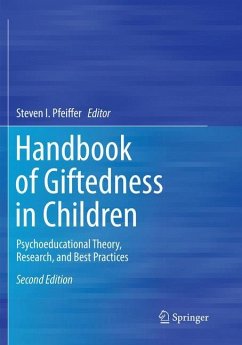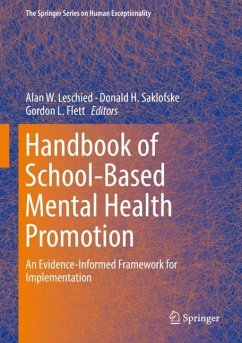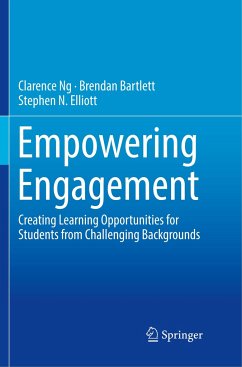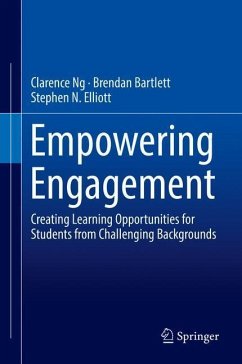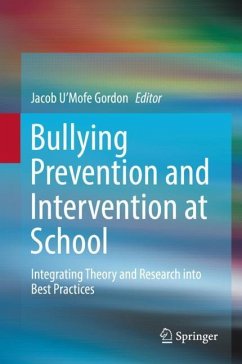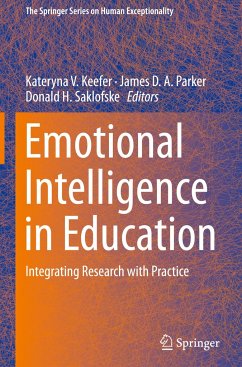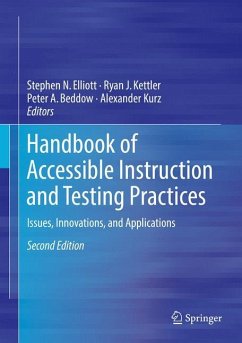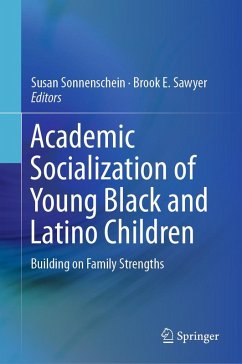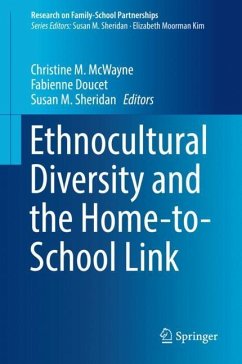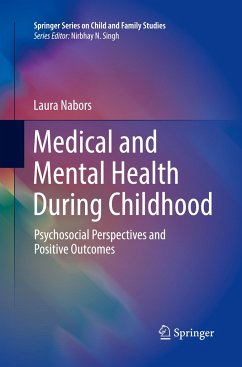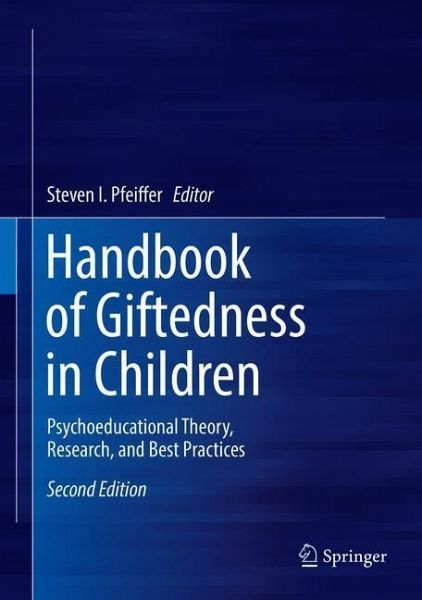
Handbook of Giftedness in Children
Psychoeducational Theory, Research, and Best Practices
Herausgegeben: Pfeiffer, Steven I.

PAYBACK Punkte
132 °P sammeln!
The second edition of this handbook incorporates the latest theory, research, and best practices in serving gifted and talented children and adolescents. The expanded and updated edition explores new and emerging ideas, themes, and findings, including the latest research from neuroscience and developmental psychology. It incorporates expanding conceptions of giftedness among researchers as both general and domain-specific as well as the value of viewing giftedness from a developmental perspective. Chapters discuss a wide range of topics including assessment, the role of family in nurturing tal...
The second edition of this handbook incorporates the latest theory, research, and best practices in serving gifted and talented children and adolescents. The expanded and updated edition explores new and emerging ideas, themes, and findings, including the latest research from neuroscience and developmental psychology. It incorporates expanding conceptions of giftedness among researchers as both general and domain-specific as well as the value of viewing giftedness from a developmental perspective. Chapters discuss a wide range of topics including assessment, the role of family in nurturing talent, and issues specific to subgroups such as disadvantaged gifted children and gifted children with special needs. In addition, the handbook provides guidelines for creating relevant interventions and designing curriculum for this diverse population.
Topics featured in the Handbook include:
· The social and emotional world of the gifted.
· Emotionalintelligence and the gifted.
· Perfectionism in gifted students.
· Depression and suicide among gifted children.
· Career counseling for the gifted and talented.
· Best practices in the identification and assessment of the gifted.
The Handbook of Giftedness in Children, Second Edition is a must-have resource for researchers, clinicians and related professionals, policy makers, and graduate students across such interrelated disciplines as child and school psychology, social work, and education policy and politics as well as special and general education, public health, school nursing, occupational therapy, psychiatry, school counseling, and family studies.
Topics featured in the Handbook include:
· The social and emotional world of the gifted.
· Emotionalintelligence and the gifted.
· Perfectionism in gifted students.
· Depression and suicide among gifted children.
· Career counseling for the gifted and talented.
· Best practices in the identification and assessment of the gifted.
The Handbook of Giftedness in Children, Second Edition is a must-have resource for researchers, clinicians and related professionals, policy makers, and graduate students across such interrelated disciplines as child and school psychology, social work, and education policy and politics as well as special and general education, public health, school nursing, occupational therapy, psychiatry, school counseling, and family studies.





